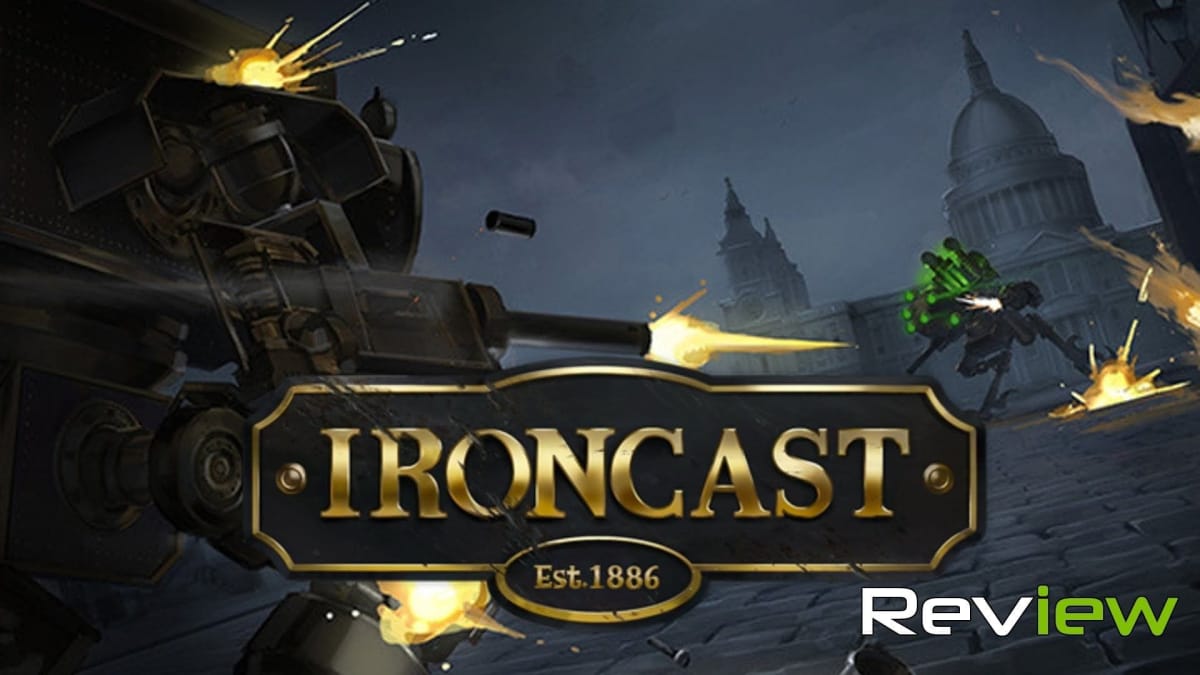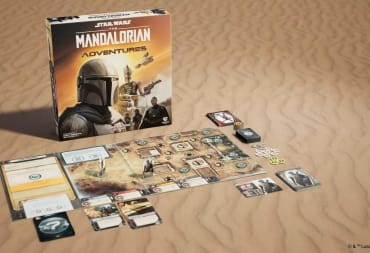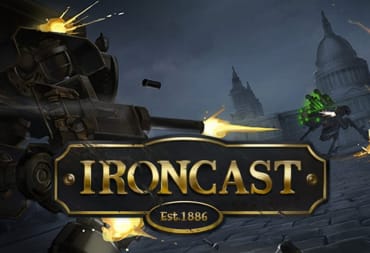Random elements are a vital element of any roguelike. They add to the unique nature of each run and surprise even the most veteran players. However, these surprises can usually be minimized with skillful play. Rogue Legacy can be conquered with careful platforming, and a master at The Binding of Issac has long since memorized enemy patterns and room layouts. Ironcast, a new steampunk roguelite from Dreadbit, combines procedural mission generation with the random boards of a gem-matching puzzle game and then layers on turn-based strategy on top of that. These elements form a huge balancing act that unfortunately leans heavily in favor of the random number generator at the cost of any truly tactical strategy.
In Ironcast, you play as one of several Victorian-era English commanders who pilot giant mechanical walkers and defend London in a war against the advancing French forces. The campaign mode is set in the final days of the war, with each run consisting of nine missions that range from securing supplies to defending an outpost to taking down a rogue mech. Each mission usually affords you enough XP to level up your commander, which provides a choice between one of three useful perks. After participating in a punishing boss battle, experience points are distributed and your profile levels up. This unlocks new commanders, mech suits, and loot drops for the next run.
These unlocks and perks are very important early on as you learn Ironcast, as variety will be key to keeping up your enthusiasm as you throw yourself against the game's various challenges. Upgrades to your mech during the campaign only come after destroying an opponent, which sometimes isn't required to complete a mission. These are temporary weapon and shield boosts that only last as long as you survive, and you don't get them for free.
Instead, you unlock the ability to build them with scrap, a currency you get for matching certain gems in the game's puzzle sections as well as with general progress. The problem here is that scrap is also used to repair your suit for the next encounter, as damage doesn't recover after most missions. Therefore, players need to understand the unique starting weapons and abilities for each character and mech, as changing or upgrading them requires accumulating a large pile of currency in a small amount of time.
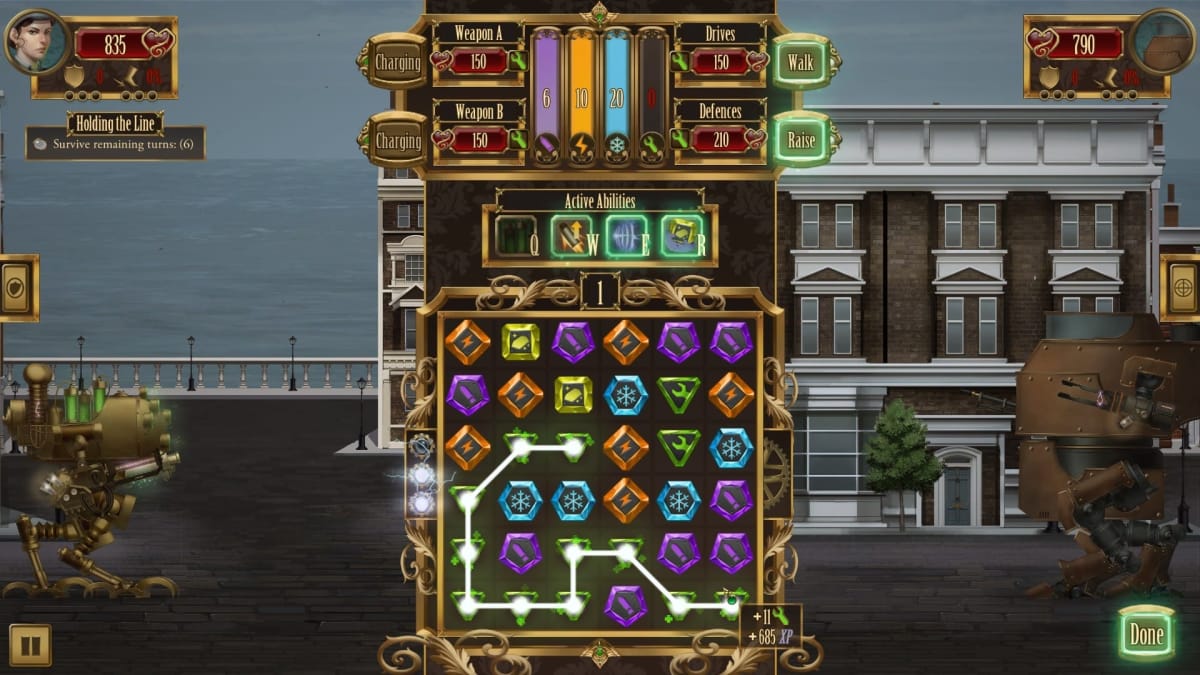
Gaining all that scrap can be difficult considering that most of the missions you can choose from are small variations on combat. Some require you to defeat a foe, others that you survive a set number of turns, but they all feel pretty interchangeable. The same missions will begin to pop up again and again after a few campaigns, each time with the same dialogue and basic structure. This leads to a feeling of sameness that is a death knell for any roguelike worth its salt. There are missions where you can trade resources without combat or earn a special piece of loot, but they are too rare to be relied upon for any single playthrough.
One of the greatest strengths of Ironcast is the core gameplay. A player going in might expect something like Bejeweled, but instead, you are attempting to link up three or more gems touching each other on the board. They can be touching in a row, or they can be set diagonally, and there are certain gems that let you chain together two strings of different gems. Each gem corresponds to fuel for running a different section of your mech. There are green gems used for repairs out on the field and blue gems for keeping your engine from overheating. Purple is catch-all ammo for your machine guns and pulse rifles, and orange acts as energy for activating your dodge and shield maneuvers.
Over the course of a turn, you get three matches on the board, the ability to fire or defend with the fuel you've built up, and the option to utilize any active perks you've acquired (such as an EMP for disabling shields and a way to clear away scrap from the board). Because you only get so many matches per turn, it's imperative that you string together long combos and go for groups of three only in desperate circumstances. Finding a way to match from one side of the board to the other while linking two or three strings feels great. What doesn't feel as great is knowing what you desperately need from the board and not getting it. There will be times when there are just no ammo or energy gems to match, and you'll have to waste moves matching scrap or unnecessary gems just to move the turns along.
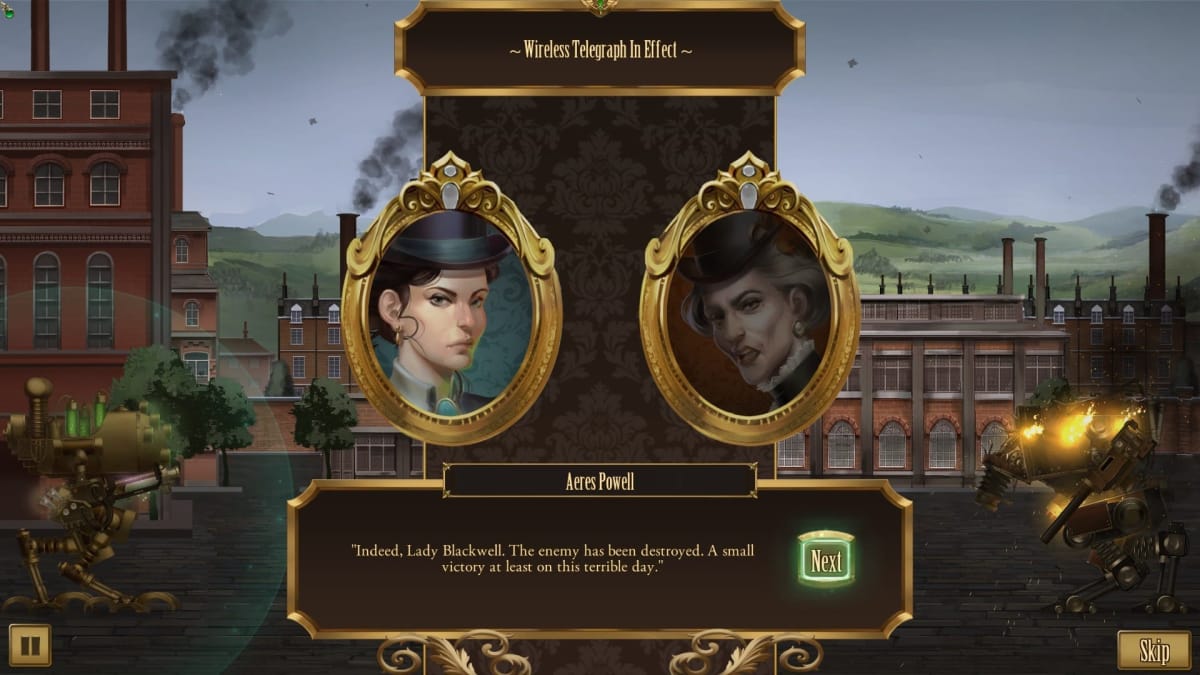
As for combat, choosing the right weapons for each situation and scraping through a scenario by overheating your engines is great fun. When Ironcast gives you the tools to succeed, you truly feel like you're piloting a complex machine and managing multiple systems. Balancing between keeping up your repairs and going into another gear to outmaneuver your opponent is exhilarating. It's possible to die against a stronger mech even when you do feel in control, but more often than not deaths will come because you lack the supplies to pull off one final shot. There is literally no recourse to getting dealt a bad hand, and it can happen at any time due to the nature of the puzzle gameplay.
The combat is also slightly marred by a few quirks in the user interface. It would be nice to know exactly how much ammo or energy it would take to fill your mech at any given time. Seeing your opponent make matches during their turns would make the game seem fairer. These points are annoying but ultimately not game-breaking. What is fatal to the experience is that the system for targeting specific parts of the opposing mech is hidden behind a small button and goes completely unexplained in the basic tutorial. There is an optional tutorial where this is mentioned, but this system is vital for late-game tactical play. It is baffling that the developers could let players loose without imparting that information, and many might not even realize that the system exists after playing several runs.
It's possible that the system was hidden because of spacing issues, as the layout of the screen during gameplay seems designed for tablets. There's no problem with that, but there's also no reason that this information couldn't be on screen when playing on a huge monitor. It's a shame too because it's hard to tell that Ironcast was designed around mobile platforms at all. The visuals are minimalistic but stylish, recalling games like Puzzle Fighter with detailed portraits and just enough combat animation to make you feel every move. Ironcast could have easily been built into an arcade cabinet if not for the hidden systems and the questionable screen placement of a pause button.
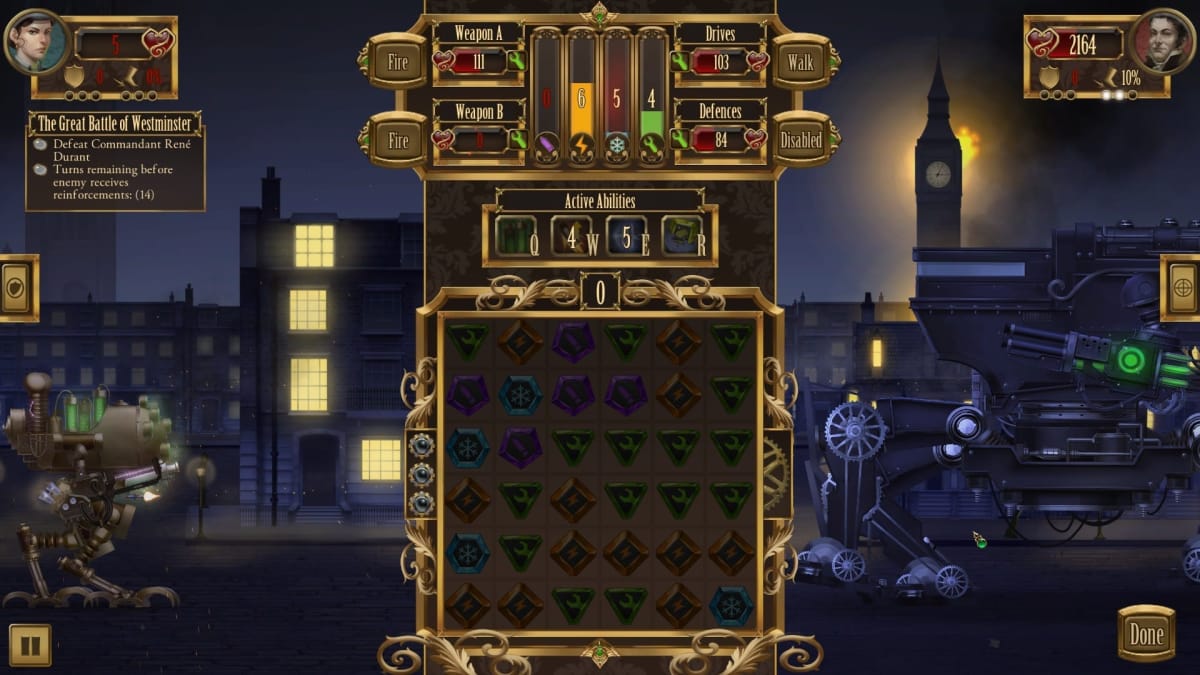
There are plenty of good ideas packed into Ironcast. The steampunk trimmings and mech theming are grand, as are its ideas when it comes to matching gems in a puzzle game. Each playthrough lasts just over an hour, allowing for short bursts that all contribute to making future playthroughs more enjoyable. However, the initial playthroughs are doomed to failure, as too much is locked away at the start. Once a player has everything at their disposal, the gameplay is still far too reliant on endless dice rolls. You need random elements for a roguelike to function, but boredom sets in if you can't challenge those procedural elements with your own skill. Ironcast has its charms but runs out of steam before it could truly capitalize on the unique aspects of its design.
This game was obtained from Ripstone and reviewed on Steam.
Review Summary
Have a tip, or want to point out something we missed? Leave a Comment or e-mail us at tips@techraptor.net
